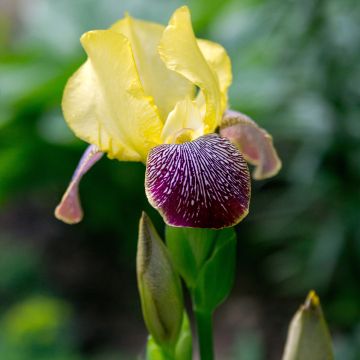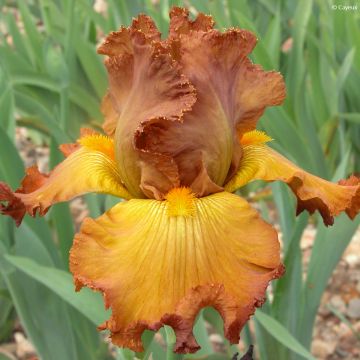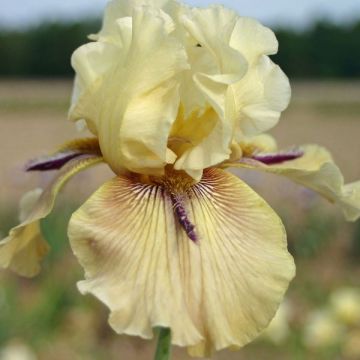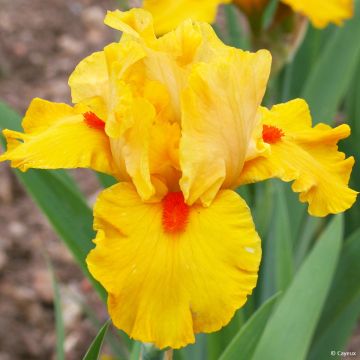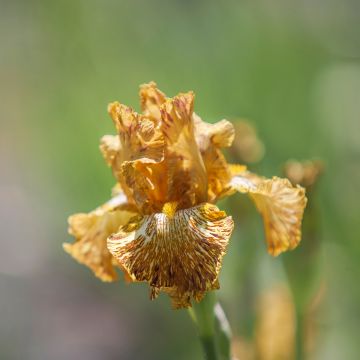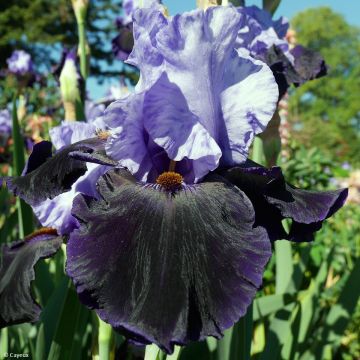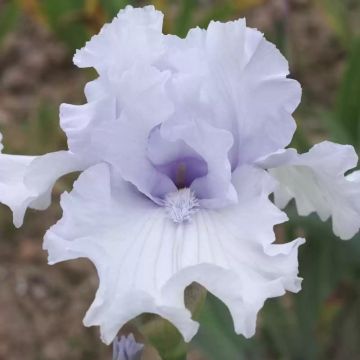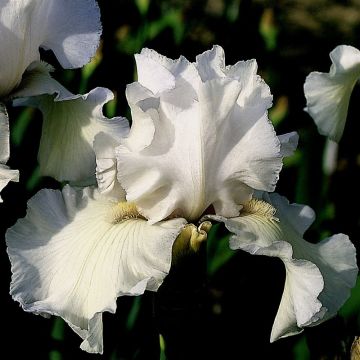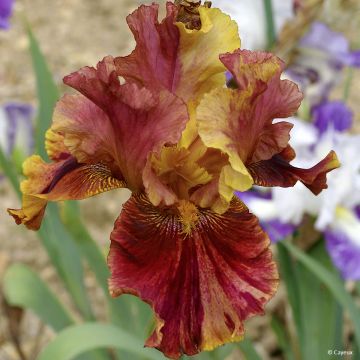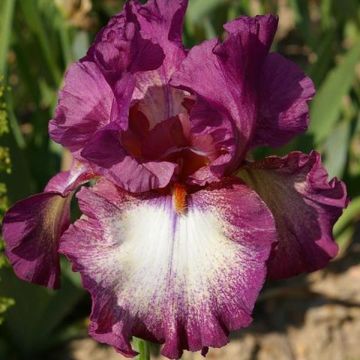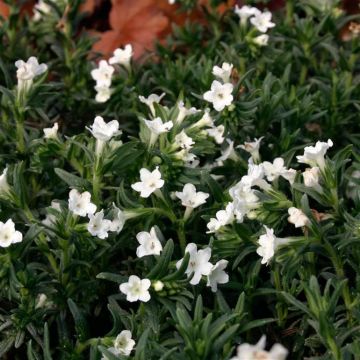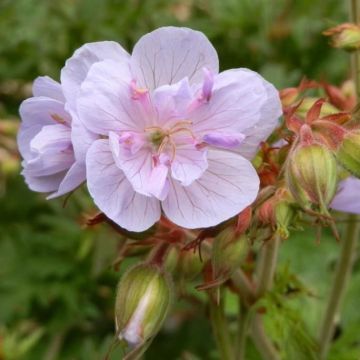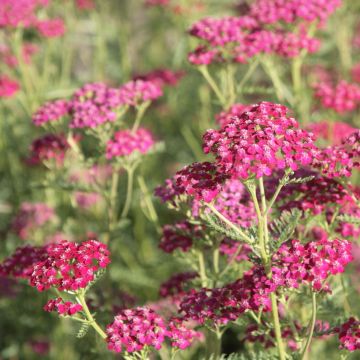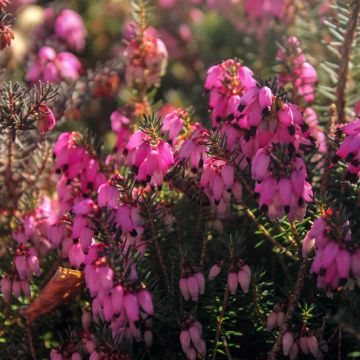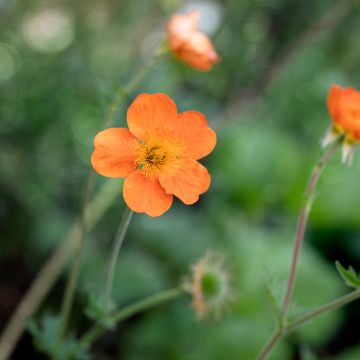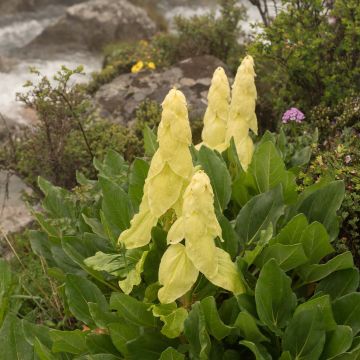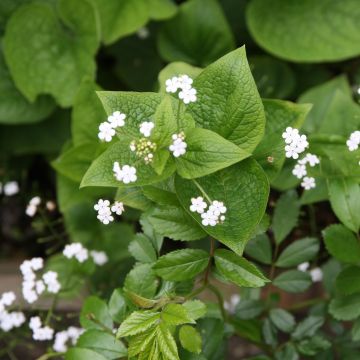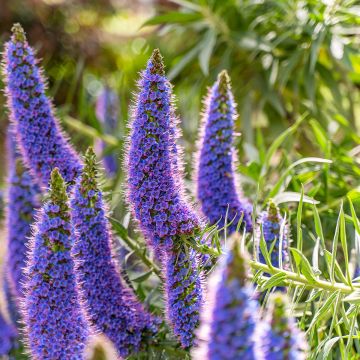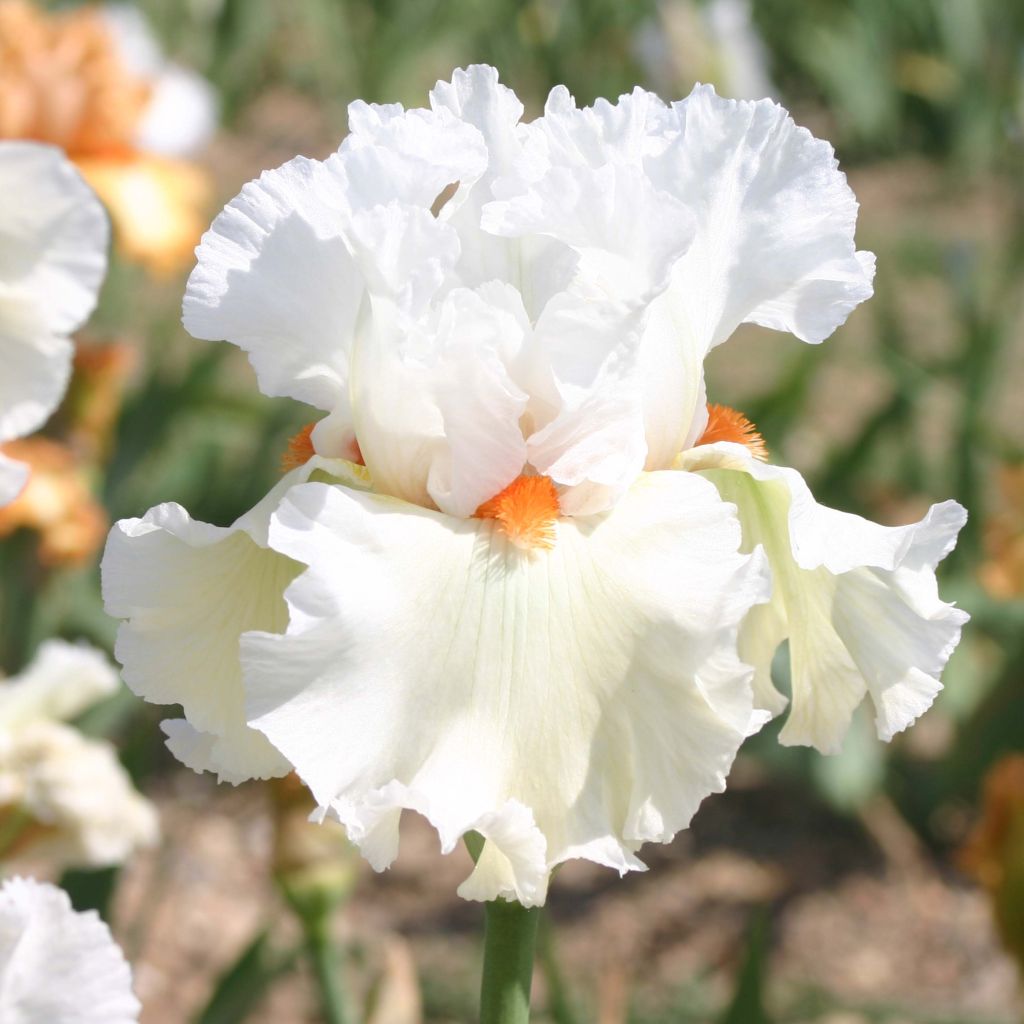

Iris germanica Lark Ascending - Bearded Iris
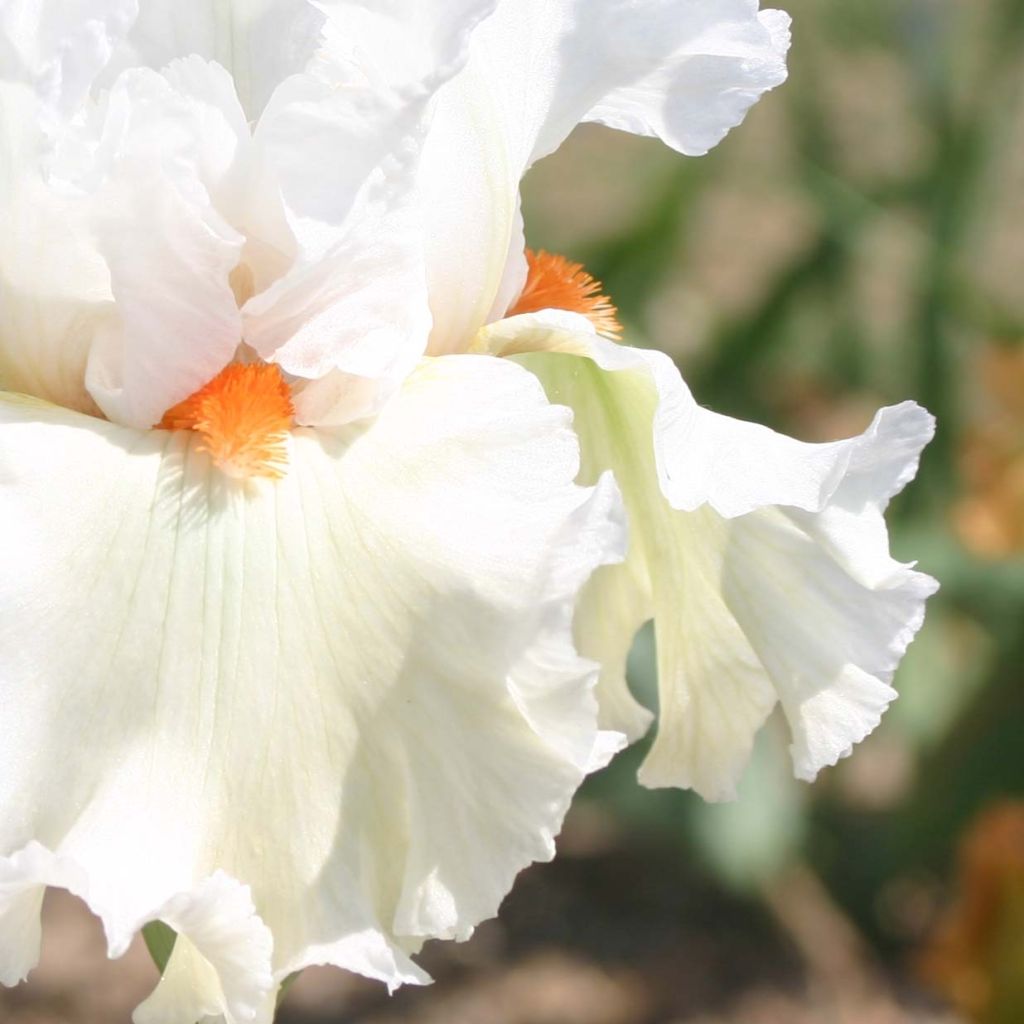

Iris germanica Lark Ascending - Bearded Iris
Iris germanica Lark Ascending - Bearded Iris
Iris germanica Lark Ascending
German Iris, Bearded Iris
This item cannot be shipped to the selected country
Delivery charge from €5.90
Delivery charge from €5.90
More information
Schedule delivery date,
and select date in basket
This plant carries a 12 months recovery warranty
More information
We guarantee the quality of our plants for a full growing cycle, and will replace at our expense any plant that fails to recover under normal climatic and planting conditions.
From €5.90 for pickup delivery and €6.90 for home delivery
Express home delivery from €8.90.
From €5.90 for pickup delivery and €6.90 for home delivery
Express home delivery from €8.90.
Does this plant fit my garden?
Set up your Plantfit profile →
Description
Iris germanica 'Lark Ascending' is a large garden iris, offering a long and majestic flowering period with flowers of an almost pure white, animated by imposing mandarin beards. Its beautiful flowers, elegantly undulating, bloom in large numbers for almost 3 weeks, well distributed on very tall stems. This sculptural variety should be placed in the sun and protected from bad weather to preserve its flowering.
Iris 'Lark Ascending' is a rhizomatous perennial plant that develops in spring in elegantly upright clumps, with its foliage disappearing in winter. It belongs to the family of irises. It is one of the many cultivars obtained for centuries, whose controversial origin is discussed around the number of chromosomes of potential ancestors. It should be noted that Garden Irises have European origins. They are plants that thrive in limestone soils and require plenty of sunlight, with their rhizomes needing to "bake" in summer sun in order to flower. A minimum of 6 hours of sunlight per day is generally required.
'Lark Ascending' will reach a height of 1m (3ft) 10cm (4in) when in bloom, with 8 to 9 double buds, and a guaranteed long flowering period. The clump will spread indefinitely over time, with the central rhizomes becoming bare in favor of the outer rhizomes. The foliage consists of long and wide sword-shaped leaves, a slightly glaucous green, with parallel veins. In April, flower stems appear, which will give tightly packed flowers in May, opening from the top towards the lower branches. The color of this plant is, as always with Garden Irises, enhanced by the iridescent texture of the upright petals and the trailing sepals. The beautiful and prominent mandarin orange beard adds to the appeal of this almost white, slightly yellow-tinted large flower.
Bred by Ben Hager, 1996.
To accompany the irises, low-growing plants or those with light foliage that complement the flowering and have compatible cultural requirements should be chosen. For example, Gaura will cast little shade on the irises and will keep the bed attractive throughout the summer. Eschscholzia will be content with a dry soil in summer, just like the irises. Geraniums, salvias, and Libertia also accompany irises very well. The vegetable garden can be adorned with a few clumps or borders of irises, as it is also a classic place for family flower cutting.
Report an error about the product description
Iris germanica Lark Ascending - Bearded Iris in pictures
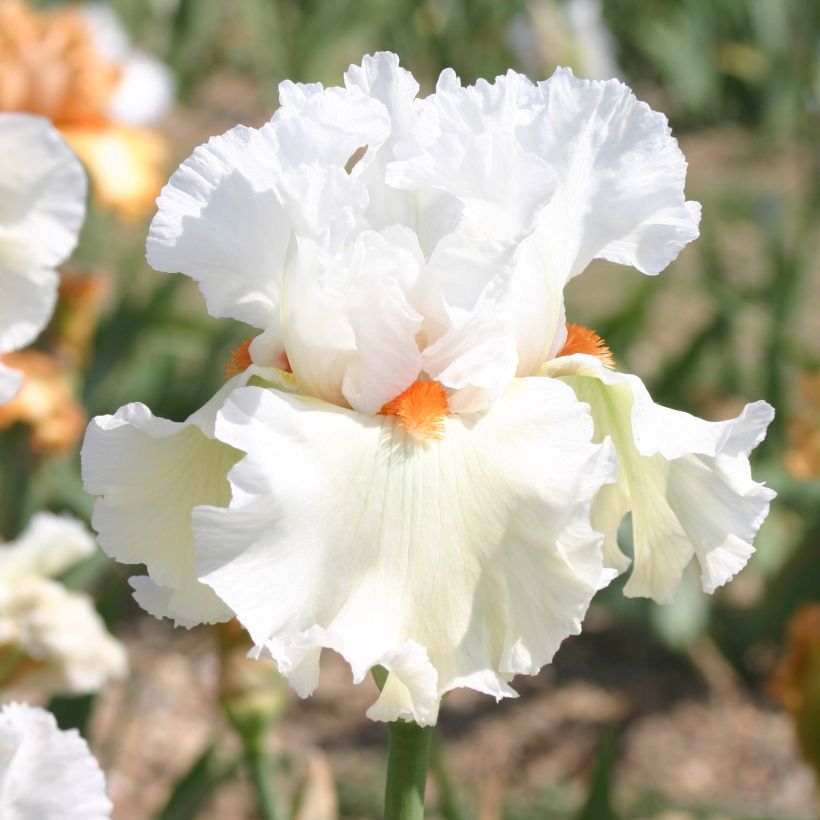

Flowering
Foliage
Plant habit
Botanical data
Iris
germanica
Lark Ascending
Iridaceae
German Iris, Bearded Iris
Cultivar or hybrid
Other German Iris - Bearded Iris
Planting and care
Do you have a sunny location, sheltered from the wind, warm and rather dry in summer?
This is the ideal location for planting tall irises! In the shade, they grow but do not flower. Hardy, they do not need winter protection. Well-drained soil is perfect, even if it is rather dry. German irises require a limestone soil: amend your soil with lime if it tends to be acidic. Excessively wet soil promotes rhizome rot. Plant from July to September. This allows the rhizomes to grow sufficiently before being lifted, and to form new roots before winter. They should be planted as soon as they are purchased for best results. Plan to divide irises every 4 years or so to give them fresh soil. They have vigorous growth and require space to develop and flower well. They are planted with spacing appropriate to the size and vigor of the variety: about 34-50cm (13-20in) for tall ones (5 to 10 plants per square meter). In a monochrome planting, the rhizomes are planted in a staggered pattern. To create a mix of colors, it is recommended for the overall aesthetic of the iris bed to plant them in groups of several plants of the same variety. Always consider the direction of rhizome growth by arranging them in a star shape, with buds and leaves facing outward, and spacing them well from other varieties to give them room to grow.
Planting
Dig a hole that is wide and deep enough. Create a large conical mound of soil in the hole, on which the rhizome and spread-out roots are placed. Cover the roots. It is important that the rhizome is left just above the surface of the soil. It should not be planted under the soil (risk of rot), so anticipate that the soil will settle and the iris will sink. In clay or damp soil, the rhizome can even be left elevated on a slight mound of a few centimeters. To make the soil adhere to the roots, lightly tamp the soil and water thoroughly immediately after planting. Water 2-3 times if necessary until the plant establishes.
Maintenance:
Keep the soil weed-free by shallow hoeing, taking care not to damage the rhizomes or roots. Weeds shade the irises, retain moisture (causing rot), and attract slugs. Similarly, remove dry leaves. If they are diseased (reddish-brown spots of heterosporiosis), burn them. Remove faded flowers.
Planting period
Intended location
Care
-
, onOrder confirmed
Reply from on Promesse de fleurs
Spring flowering perennials
Haven't found what you were looking for?
Hardiness is the lowest winter temperature a plant can endure without suffering serious damage or even dying. However, hardiness is affected by location (a sheltered area, such as a patio), protection (winter cover) and soil type (hardiness is improved by well-drained soil).

Photo Sharing Terms & Conditions
In order to encourage gardeners to interact and share their experiences, Promesse de fleurs offers various media enabling content to be uploaded onto its Site - in particular via the ‘Photo sharing’ module.
The User agrees to refrain from:
- Posting any content that is illegal, prejudicial, insulting, racist, inciteful to hatred, revisionist, contrary to public decency, that infringes on privacy or on the privacy rights of third parties, in particular the publicity rights of persons and goods, intellectual property rights, or the right to privacy.
- Submitting content on behalf of a third party;
- Impersonate the identity of a third party and/or publish any personal information about a third party;
In general, the User undertakes to refrain from any unethical behaviour.
All Content (in particular text, comments, files, images, photos, videos, creative works, etc.), which may be subject to property or intellectual property rights, image or other private rights, shall remain the property of the User, subject to the limited rights granted by the terms of the licence granted by Promesse de fleurs as stated below. Users are at liberty to publish or not to publish such Content on the Site, notably via the ‘Photo Sharing’ facility, and accept that this Content shall be made public and freely accessible, notably on the Internet.
Users further acknowledge, undertake to have ,and guarantee that they hold all necessary rights and permissions to publish such material on the Site, in particular with regard to the legislation in force pertaining to any privacy, property, intellectual property, image, or contractual rights, or rights of any other nature. By publishing such Content on the Site, Users acknowledge accepting full liability as publishers of the Content within the meaning of the law, and grant Promesse de fleurs, free of charge, an inclusive, worldwide licence for the said Content for the entire duration of its publication, including all reproduction, representation, up/downloading, displaying, performing, transmission, and storage rights.
Users also grant permission for their name to be linked to the Content and accept that this link may not always be made available.
By engaging in posting material, Users consent to their Content becoming automatically accessible on the Internet, in particular on other sites and/or blogs and/or web pages of the Promesse de fleurs site, including in particular social pages and the Promesse de fleurs catalogue.
Users may secure the removal of entrusted content free of charge by issuing a simple request via our contact form.
The flowering period indicated on our website applies to countries and regions located in USDA zone 8 (France, the United Kingdom, Ireland, the Netherlands, etc.)
It will vary according to where you live:
- In zones 9 to 10 (Italy, Spain, Greece, etc.), flowering will occur about 2 to 4 weeks earlier.
- In zones 6 to 7 (Germany, Poland, Slovenia, and lower mountainous regions), flowering will be delayed by 2 to 3 weeks.
- In zone 5 (Central Europe, Scandinavia), blooming will be delayed by 3 to 5 weeks.
In temperate climates, pruning of spring-flowering shrubs (forsythia, spireas, etc.) should be done just after flowering.
Pruning of summer-flowering shrubs (Indian Lilac, Perovskia, etc.) can be done in winter or spring.
In cold regions as well as with frost-sensitive plants, avoid pruning too early when severe frosts may still occur.
The planting period indicated on our website applies to countries and regions located in USDA zone 8 (France, United Kingdom, Ireland, Netherlands).
It will vary according to where you live:
- In Mediterranean zones (Marseille, Madrid, Milan, etc.), autumn and winter are the best planting periods.
- In continental zones (Strasbourg, Munich, Vienna, etc.), delay planting by 2 to 3 weeks in spring and bring it forward by 2 to 4 weeks in autumn.
- In mountainous regions (the Alps, Pyrenees, Carpathians, etc.), it is best to plant in late spring (May-June) or late summer (August-September).
The harvesting period indicated on our website applies to countries and regions in USDA zone 8 (France, England, Ireland, the Netherlands).
In colder areas (Scandinavia, Poland, Austria...) fruit and vegetable harvests are likely to be delayed by 3-4 weeks.
In warmer areas (Italy, Spain, Greece, etc.), harvesting will probably take place earlier, depending on weather conditions.
The sowing periods indicated on our website apply to countries and regions within USDA Zone 8 (France, UK, Ireland, Netherlands).
In colder areas (Scandinavia, Poland, Austria...), delay any outdoor sowing by 3-4 weeks, or sow under glass.
In warmer climes (Italy, Spain, Greece, etc.), bring outdoor sowing forward by a few weeks.

































